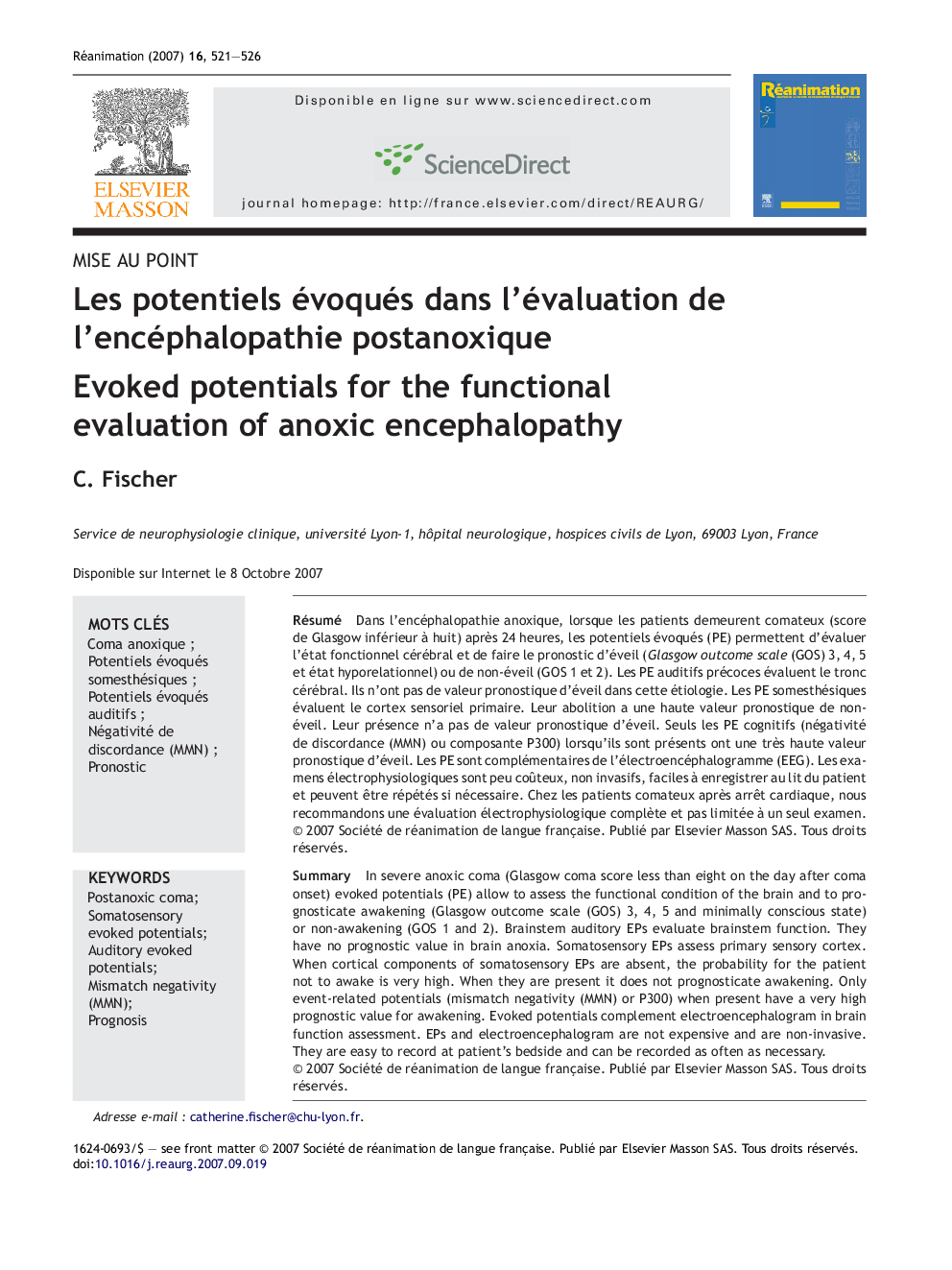| Article ID | Journal | Published Year | Pages | File Type |
|---|---|---|---|---|
| 2612277 | Réanimation | 2007 | 6 Pages |
Abstract
In severe anoxic coma (Glasgow coma score less than eight on the day after coma onset) evoked potentials (PE) allow to assess the functional condition of the brain and to prognosticate awakening (Glasgow outcome scale (GOS) 3, 4, 5 and minimally conscious state) or non-awakening (GOS 1 and 2). Brainstem auditory EPs evaluate brainstem function. They have no prognostic value in brain anoxia. Somatosensory EPs assess primary sensory cortex. When cortical components of somatosensory EPs are absent, the probability for the patient not to awake is very high. When they are present it does not prognosticate awakening. Only event-related potentials (mismatch negativity (MMN) or P300) when present have a very high prognostic value for awakening. Evoked potentials complement electroencephalogram in brain function assessment. EPs and electroencephalogram are not expensive and are non-invasive. They are easy to record at patient's bedside and can be recorded as often as necessary.
Keywords
Related Topics
Health Sciences
Medicine and Dentistry
Emergency Medicine
Authors
C. Fischer,
